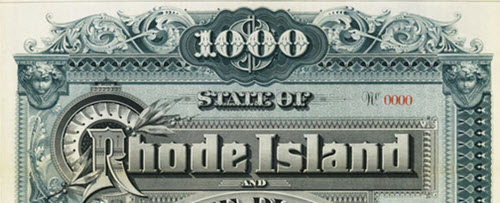Bond
In finance, a bond is a type of debt security. There are many different types of bonds available. Some of them are traded by investors and speculators, while others aren’t. Some bods – such as the catastrophe bond, the fidelity bond and the surety bond – is insurance or reinsurance rather than an instrument created for investing or trading.

Government bond
A government bond is issued by a national government. Since the bond is backed by the issuing country, government bonds are normally rated as low-risk investment. The risk rating will however depend on the issuing country, since it is possible for a country to default on its debt. At the time of writing, a government bond issued by countries such as Canada, Sweden, Norway or Australia is considered very low risk. A government bond issued by Venezuela, Ethiopia or the Democratic Republic of Congo is on the other hand considered high risk.
The issuer of a governmental bond will typically be contractually bound to make periodic interest payments during the lifetime of the bond, and then repay the face value of the bond on the maturity date. Always check the terms and conditions of the bond before you make any purchase.
For some governmental bonds, you will not receive any guaranteed monthly or yearly interest payments. Instead, the money is placed in a pool and raffled out among the bond holders (usually monthly, every quarter or once a year).
Bonds are usually, but not always, denominated in the currency of the issuing country. This is something to consider when you assess the risk of a bond, because if the currency goes through significant inflation during the lifetime of the bond, the face value of the bond can be worth very little in terms of purchase power upon maturity. To make their bonds more appealing to investors, some countries issue inflation-indexed bonds where the face value payment and the interest payments are linked to a consumer price index.
War bond
A war bond is a government bond issued to raise funds for a war effort.
GDP-linked bond
A GDP-linked bond is a debt security or derivative security in which the issuer (the issuing country) is contractually bound to pay a return (in addition to amortization) that depends on the Gross Domestic Product of the issuing country. The higher the GDP goes, the higher the return becomes.
In a way, a GDP-linked bond is almost like investing in a company, since you will get a better “dividend” if the issuer achieves a high growth rate. However, you will of course not get any ownership rights over the country or the right to vote in general elections.
Before you purchase a GDP-linked bond, make sure you know if it is linked to real GDP, nominal GDP or aspects of both.

Municipal bond
A municipal bond is issued by a city, local government or similar authority. One example of a country where municipal bonds are common is the USA, where a large and highly liquid market for trade-able municipal bonds exists. In the U.S., even small entities such as a school district or a publicly owned airport can issue a municipal bond.
The issuer of a municipal bond can either take on a general obligation for the bond or only link the bond to specified revenues. A municipality can for instance issue bonds to obtain cash for a solar park venture, and link the bonds to future revenues from the sold electricity. General obligation bonds are usually considered lower risk than revenue bonds.
In the U.S, interest income from a municipal bond is often treated favorable when it comes to federal taxes, and in some states it is also exempt from state income tax and/or local taxes.

Corporate bond
A corporate bond is issued by a corporation. It is an alternative to other types of financing available to corporations, e.g. a standard bank loan or issuing and selling new shares. Some corporations will issue bonds to finance ongoing operations, but it is more common to see bonds issued when a corporation is about to expand its business or is in M&A proceedings. Corporate bonds can be secured or unsecured, senior or subordinated, and linked to different parts of the corporations capital structure.
Among the many different types of corporate bonds, we find quite a few that are embellished with special features in addition to being bonds. There is for instance the convertible bond, where the bond holder can elect to convert the bond to equity. A corporate bond with an embedded call option – a so called callable bond – allows the issuing company to redeem the debt before the maturity date. The opposite is a puttable bond, a bond which allows the bond holder to put the bond back to the issuer before the maturity date. Puttable corporate bonds are much rarer than callable corporate bonds. A bond that is neither callable nor puttable can be referred to as a bullet bond.
Standardized corporate bonds can be found on a few exchanges, but over-the-counter (OTC) trading is much more common for corporate bonds. At the time of writing, trading in corporate bonds is normally carried out in United States Dollars, but the Euro is catching ground. Corporations based in countries with other currencies than these two tend to issue their bonds in USD or Euro if they want to make their bonds more trade-able (and thereby more attractive to investors). In early 2015, Apple Inc issued bonds in Swiss-francs to take advantage of the low borrowing costs. At the time, the yields of Switzerland’s government bonds was negative.
This article was last updated on: March 16, 2016